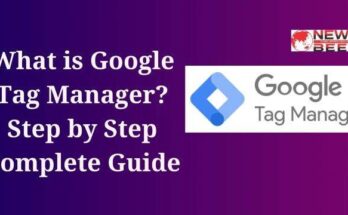Creating a comprehensive guide on the top free keyword research tools requires an in-depth analysis of the available resources, their features, and how they can benefit your SEO strategy. Here’s a structured breakdown of the top free keyword research tools, their unique selling points, and practical advice on leveraging these tools effectively. This guide is designed to provide valuable insights for beginners and seasoned marketers alike, helping you to enhance your content strategy, improve your website’s visibility, and drive more targeted traffic.
Table of Contents
ToggleIntroduction
Keyword research is a foundational element of search engine optimization (SEO) that involves identifying popular words and phrases people enter into search engines. This process helps marketers understand how to optimize their content to increase visibility and rank higher in search engine results pages (SERPs). With the right tools, you can uncover valuable insights about your target audience’s search behavior, enabling you to tailor your content strategy to meet their needs. Fortunately, there are several free keyword research tools available that offer powerful features to help you in your SEO efforts.
Top Free Keyword Research Tools
1. Google Keyword Planner
Overview: Google Keyword Planner is a tool designed for advertisers but is invaluable for SEO keyword research. It provides insights into search volume, competition, and suggests related keywords.
Key Features:
- Search volume trends and historical data
- Competition level for keywords
- CPC (Cost Per Click) estimates
- Ability to find new keyword ideas
How to Use: To access Google Keyword Planner, you need a Google Ads account. Once logged in, you can start by entering a seed keyword to get related keyword suggestions, view their average monthly searches, and assess competition levels.
Benefits:
- Directly integrates with Google’s vast database
- Offers precise search volume data
- Free to use with a Google Ads account
2. Ubersuggest
Overview: Ubersuggest, developed by Neil Patel, is a user-friendly tool that provides keyword suggestions, search volume data, competition, and even content ideas.
Key Features:
- Keyword volume, trend, CPC, and competition data
- SERP analysis and content ideas
- Backlink data for competitor analysis
How to Use: Enter a keyword or domain into Ubersuggest to get a list of related keywords, including long-tail keywords, and analyze their performance metrics. The tool also offers insights into the top-ranking pages for each keyword.
Benefits:
- Easy to use with a clean interface
- Offers a good balance between depth of data and simplicity
- Free version provides substantial insights
3. Answer The Public
Overview: Answer The Public uses autocomplete data from search engines to generate questions and phrases related to your seed keyword. It visualizes data in a unique way, offering a different perspective on keyword research.
Key Features:
- Visual keyword research tool
- Generates questions, prepositions, comparisons, alphabetical, and related searches
- Offers downloadable reports
How to Use: Simply enter a keyword, and AnswerThePublic will present you with a range of questions, propositions, and related keywords. This tool is excellent for uncovering long-tail keywords and understanding user intent.
Benefits:
- Great for finding question-based keywords
- Helps in creating content that answers user queries
- Free version offers valuable insights
4. Keyword Surfer
Overview: Keyword Surfer is a Chrome extension that shows search volume, CPC, and competition data directly in Google SERPs as you search, making it a convenient tool for quick keyword research.
Key Features:
- Displays search volume within Google search results
- Offers related keyword suggestions
- Free to use as a browser extension
How to Use: After installing the extension, simply conduct a search on Google, and Keyword Surfer will display relevant data for your query and related keywords on the side of the SERPs.
Benefits:
- Instant access to keyword data without leaving the search page
- Helps in quick keyword comparison and analysis
- Completely free and easy to install
5. Google Trends
Overview: Google Trends provides insights into the popularity of search queries over time. It’s an excellent tool for identifying seasonal trends, geographical interest, and related topics.
Key Features:
- Search interest over time
- Regional interest data
- Related topics and queries
How to Use: Enter a keyword in Google Trends to see its interest over time, regional popularity, and related topics. This tool is particularly useful for identifying trending topics and seasonal variations in search interest.
Benefits:
- Helps in understanding keyword popularity trends
- Can identify seasonal peaks in search interest
- Free and easy to use with a Google account
6. Moz Keyword Explorer
Overview: Moz Keyword Explorer offers a comprehensive suite of keyword research tools, including keyword suggestions, SERP analysis, and keyword difficulty scores.
Key Features:
- Keyword suggestions and SERP analysis
- Keyword difficulty score
- Organic CTR and priority score
How to Use: With a free Moz account, you can perform up to 10 queries per month. Enter a keyword to receive a list of suggestions, analyze the difficulty of ranking, and assess the potential click-through rate (CTR).
Benefits:
- Offers detailed keyword analysis
- Useful for assessing keyword competition and potential traffic
- Free version provides valuable insights, albeit with limited queries
You May Also Read:
What is Digital Marketing in Hindi
SEO Interview Questions and Answers
What is Affiliate Marketing Meaning
7. SEMrush Keyword Magic Tool
Overview: SEMrush’s Keyword Magic Tool is part of a larger suite of SEO tools. It offers extensive keyword data, including volume, trend, competition, and a unique keyword difficulty score.
Key Features:
- Extensive keyword database
- Keyword difficulty scores and SERP features
- Advanced filtering options
How to Use: Access to the Keyword Magic Tool requires a SEMrush account. With the free version, you’re limited in the number of searches and results, but you can still get valuable insights into keyword metrics and suggestions.
Benefits:
- Comprehensive keyword data
- Helps in strategic keyword selection with difficulty scores
- Integrated with other SEMrush tools for a full SEO suite
Conclusion
Effective keyword research is pivotal for any successful SEO strategy, allowing you to understand your audience’s search behavior and optimize your content accordingly. While premium tools offer advanced features, these free keyword research tools provide a solid foundation for beginning your SEO journey or complementing your existing toolkit. By leveraging these tools, you can gain insights into search trends, competition levels, and uncover opportunities to improve your website’s visibility and attract more targeted traffic. Each tool offers unique benefits, so experimenting with a combination of them can help you develop a more robust and effective SEO strategy.
FAQs:
Q1. What are keyword research tools?
A: Keyword research tools help users find, analyze, and select keywords that are relevant to their website’s content, products, or services. These tools provide insights like search volume, competition level, and related keywords, which can aid in optimizing websites for search engines and improving visibility.
Q2. Why are keyword research tools important?
A: These tools are crucial for understanding what your target audience is searching for online. By identifying the right keywords, you can tailor your content to meet user needs, improve your site’s SEO, attract more visitors, and potentially increase conversions.
Q3. Can I do keyword research for free?
A: Yes, there are several free keyword research tools available that offer valuable insights without the need for a subscription. While these may not have all the features of paid tools, they are a great starting point for most SEO and content marketing efforts.
Q4. What are some top free keyword research tools?
A:
- Google Keyword Planner: Originally designed for Google Ads users, it provides keyword ideas and traffic estimates to help plan advertising campaigns.
- Ubersuggest: Offers keyword suggestions, search volume data, and insights into the competition.
- Answer The Public: Generates questions, prepositions, and comparisons from keyword ideas, useful for creating content that answers specific queries.
- Keyword Tool.io: Uses Google Autocomplete data to generate relevant long-tail keywords for any topic.
- Moz Keyword Explorer: Provides keyword suggestions, difficulty scores, and SERP analysis with a limited number of free searches per month.
- SEMrush: Offers a comprehensive suite of SEO tools, including keyword research, with limited access in the free version.
Q5. How accurate are free keyword research tools?
A: While free keyword research tools provide valuable insights, their accuracy can vary. They are generally reliable for getting a broad sense of keyword trends and relative search volumes, but the exact numbers should be taken as estimates. Paid tools may offer more precise data and additional features for deeper analysis.
Q6. How do I choose the right keywords?
A: Select keywords based on relevance to your content, search volume, and competition level. Aim for a mix of head terms (broad, highly searched terms) and long-tail keywords (more specific, less competitive phrases). Consider the intent behind the keywords to ensure they align with your content goals.
Q7. Can I rely solely on free keyword research tools for my SEO strategy?
A: While free tools offer a good starting point, they may not provide all the insights needed for a comprehensive SEO strategy. It’s beneficial to use them alongside other SEO practices, such as on-page optimization, link building, and content creation. For more advanced needs, consider investing in a paid tool.
Q8. How often should I do keyword research?
A: Keyword research is not a one-time task. It should be an ongoing part of your SEO strategy. Regularly conducting keyword research helps you keep up with trends, understand changing user behavior, and uncover new opportunities for content and optimization.




